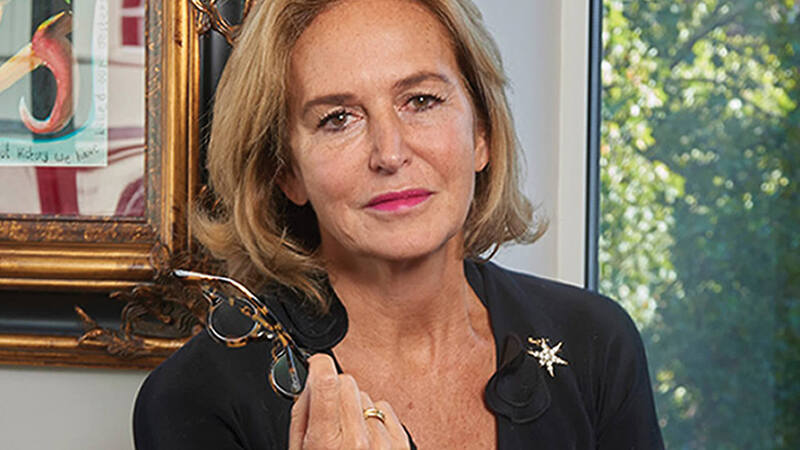You are viewing your 1 free article this month. Login to read more articles.
Self-publish and be sneered at?
There are many things I love about the book industry but there are also a few that I don’t. Publishing can be slow and old-fashioned at times, broadsheet review pages can be snooty and exclusive and literary awards can be unfair in their submission guidelines. You probably won’t be surprised to learn that my accusations are levelled mainly towards attitudes to self-publishing.
Self-publishing has a lot going for it – I am a self-publishing enthusiast. But its one big disadvantage is the book industry itself – readers excepted. I have yet to meet a single reader who cares a jot who published the book they are reading. They just want great books that are well published. However, the industry does care. The broadsheets seem to have a blanket ban on reviewing self-published books and many literary awards exclude books expressly on the basis of who paid for their publication.
But should a writer’s talent really be judged by who has paid for the publication of his or her book? We all know that publishers are becoming increasingly (and necessarily) risk-averse, so what happens to the authors who, not so very long ago, would have been picked up by a traditional publisher? What happens to those authors whose agents love their book but can’t place it because it doesn’t fit into this or that box, it’s cross-genre or because it’s not the next Gone Girl?
Rachel Abbott is a highly successful self-published author. She has written five best-selling psychological thrillers plus a novella, and last year was named the 14th bestselling author over the last five years on Amazon's Kindle in the UK. By March of this year she had sold 2 million copies of her books and she has a good and supportive agent in Lizzy Kremer. Yet when her publicist began work to generate interest in Stranger Child, she was met with a blanket no from book review editors – because Rachel pays for her own work to be published.
Surely the many, many readers who buy and enjoy Rachel’s books can’t be wrong? If they have read and enjoyed them isn’t it just possible that some of the readers who browse the book reviews sections of their newspapers could possibly enjoy them too? Or perhaps they would Google Rachel, see that she has paid for the publication of the book and scratch the book from their ‘to read’ list in protest.
I don’t think so.
It seems that it is “self-publish and be faintly sneered at” by an industry that depends on authors, books and readers for its very existence, or sigh sadly and put the years of hard work back in the metaphorical drawer.
Yes, many self-published books are not very good. Sometimes they are poorly written, sometimes they are poorly edited (if at all) and sometimes they are poorly produced. Often all three apply. But if a microwaveable spaghetti bolognese from a supermarket value range doesn’t taste particularly good, does it mean we should boycott all spaghetti bologneses and indeed block them from ever reaching our plates?
I am tired of the outdated and lazy assumption that a writer’s talent can only be verified by a third party paying for the publication of the work. There are more than enough obstacles in place to dissuade, deter and disillusion our authors already – do we really need another one to add to the list?
I believe that disruption is much needed in an industry that really doesn’t want to be disrupted. We need new publishing models that benefit the author and the publisher – and most importantly the readers. Unbound offers a much-praised new route to publication for authors via their crowdfunding platform, while Meze offer design and publishing services to regional restaurants who wish to create their own cookbooks but who don’t have the requisite celebrity face to make them of interest to the big guns. I hope we will see more of these alternative models appearing as the industry begins to recognise that there does not need to be a “one size fits all” approach to getting great books out there.
My own company RedDoor offers another option for talented but overlooked writers. Bridging the gap between traditional and self-publishing we are rigorously selective in our commissioning process and publish to the highest traditional standards. In our model the author covers the costs (editorial, design, production etc) associated with the first print run. The cost varies according to the book but the minimum would be around £4,500 and revenue is shared 60/40 in the author’s favour. We aim for authors to go into profit in the first year. Our first 2016 title, Beneath the Surface by Heidi Perks, has been well-received with a great review in Heat magazine, and over 5,000 units sold in the first six weeks, while Andy Rumbold’s The Last Fiesta, published at the end of 2015, has been longlisted for the Bath Novel Award and shortlisted for the People’s Book Prize.
Although I’d originally expected us to operate primarily as an incubator for new talent, we are finding that many of our authors have been traditionally published in the past and/or are coming to us via their agents. In the latter case some agents receive a commission from sales but this is a new model and our overall experience has been that agents are pleased to be able to offer authors that they have been unable to place a solid and credible publication platform.
As new publishing models evolve we do need to have benchmarks of quality and credibility, but who ultimately foots the publishing bill should most definitely not be one of them.
Clare Christian is publisher at RedDoor Publishing.



















